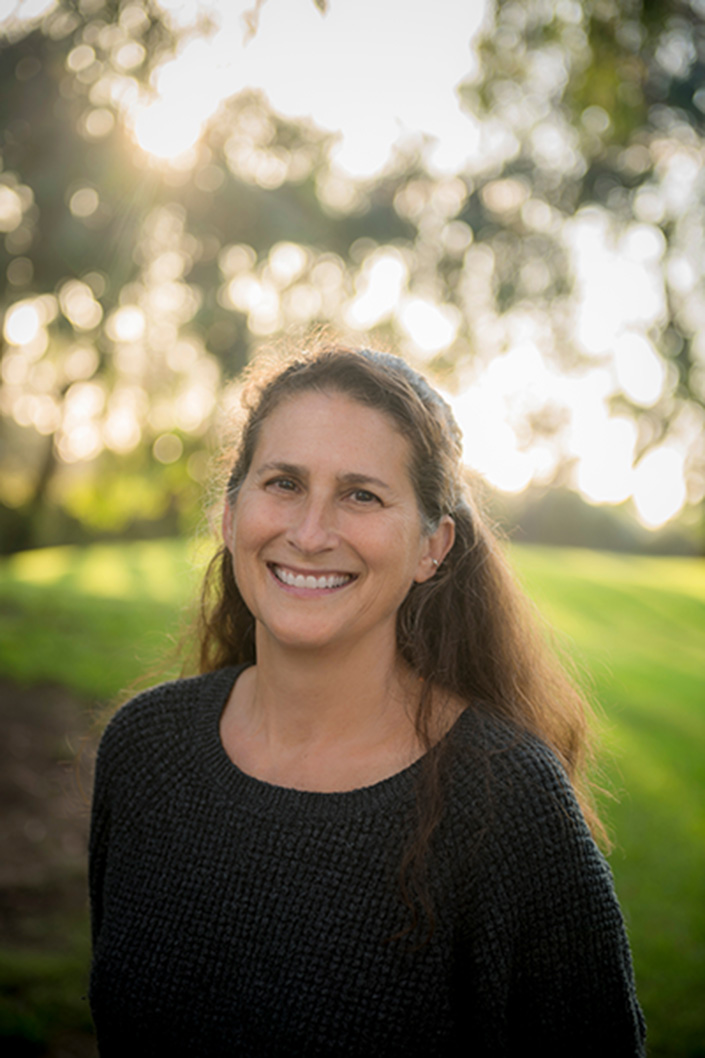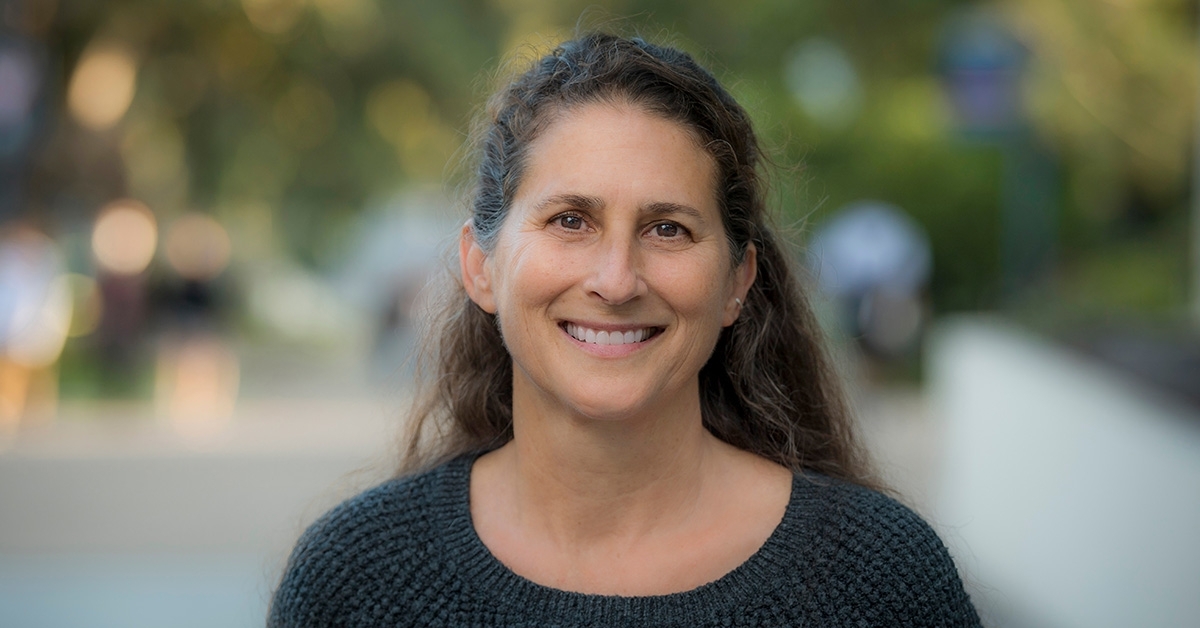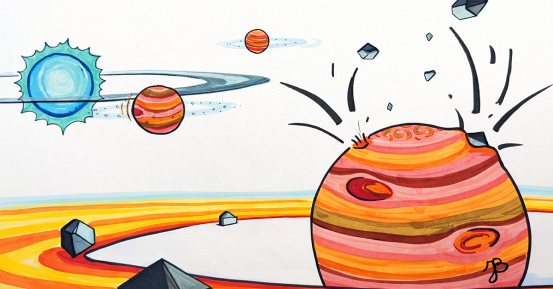Math to Make a Difference
A myth-busting Q&A with Economics Department Chair Julie Cullen about the field and its future
Story by:
Published Date
Article Content
How’s the stock market doing? Any investment tips? These are questions economists face and fend off all the time. While some economists do, in fact, concern themselves with financial matters like these, most do not. Most economists, says the chair of UC San Diego’s Department of Economics, are trying to figure out how people change their actions in response to changing circumstances or changing policies. Broadly defined, economics "is the study of human choices,” Julie Cullen says. “Just as the weatherperson uses models and data to predict the weather, economists use models and data to predict human behavior.”
Economists who study individuals and smaller groupings of people like companies are called “microeconomists.” Those who focus on bigger entities like whole countries and governments are “macroeconomists.” Econometricians and theorists develop the tools. Some economists focus on the labor or healthcare markets, others on education and the environment.
Cullen, who specializes in public economics, began teaching at UC San Diego in 2004 and was elected chair of UC San Diego’s top-ranked Economics Department in 2021. As an undergraduate, she switched from math to majoring in economics, drawn by the ability to apply math to practical questions. After graduation, her experiences as a Peace Corps volunteer in Guatemala convinced her to pursue a PhD.
We sat down to chat about the field and its future.
What is economics?
A: Economics is the study of human decision-making – how people behave and make choices in response to incentives. Sometimes those incentives are financial, but it’s not just about money. For example, why do people have children? How is this choice affected by access to parental leave? Why do people cheat on taxes? Yes, it’s in part to save money. But it also matters whether they think others are cheating too, and whether they trust the government.
Economics at UC San Diego started out more as a purely mathematical science, but what’s happened over time is that, well, we discovered the world is more complicated than what we could fit into the mathematical models alone. We’ve gone from doing very abstract work to focusing more on practical applications with social impact. We’re still grounded in the technical tools – and those are evolving – but we’re more often than not applying these to social issues. We have faculty working on discrimination in bail decisions, for example, and faculty working to understand the effects of building codes on surviving wildfires. Also: What we can do to improve the provision of education? What is the best way to combat poverty?
"Economics is the study of human decision-making."
What do economists do? And why do they do it?
A. Fundamentally, we use formal frameworks to simplify the world, or a particular social context, so we can pick up what is the cause and what the effect. We really want to get beyond correlation and be able to say “this caused that” or “this is what will happen.” The idea is to say, plausibly, what a policy did and what an alternative might do.
At their most powerful, our tools let us predict how a policy or other change affects people’s choices and outcomes.
As to why: For some, of course, the joy is in the pure beauty of the logic or the beauty of the model. Even I, and I’m an applied economist, get caught up sometimes in the elegance and can’t help taking the time to make my code just that little bit prettier! But many of us do it because we hope to change the world in a positive direction. Many of us hope we’ll have a real impact on policy – and with that either mitigate inequities or improve efficiency.
"There’s a place for economists now in almost every private and public sector."
How is our Economics Department similar to or different from other econ departments?
A. There are many different subfields in economics, and at other universities these specialties often end up being siloed from one another. Cross-field collaboration is relatively rare. At UC San Diego, we’re a lot more interdisciplinary within our department itself. We have econometricians partnering with development economists, for example, and behavioral economists tied directly to micro-theorists. Our in-department collaborations, across subfields, enable us to advance the frontier more rapidly as we together identify the pinch points.
At a large research university like UC San Diego, we have the opportunity to work with people in other disciplines. And being at a California public institution means we are often called on to address important policy issues in our state, such as public education, healthcare, fire or pollution from emissions.
Our department cares deeply about doing work that matters.
What is the future of the field?
A. Our traditional strength at UC San Diego has been in the theoretical tools and econometrics. In the past 15 years, we’ve really grown in the practical, applied side. I’ve seen universally this pattern: The growth of applied economics.
Economists have always been in demand in academia and in government. There are new and growing demands for us in tech. There’s a place for economists now in almost every private and public sector. The growth of available data has enabled the sorts of self-study that most organizations need – being able to ask and answer “How can we make ourselves better?” That has translated into greater demand for the kinds of critical thinking and data analytic skills that economists bring. The demand seems almost infinite. If you ask me, economists are probably going to take over the world.
What’s next for the department?
A. Our goal is to take advantage of all that San Diego has to offer and become even more of an intellectual destination. We’re hoping the department will become a hub for researchers from all over the world.
We also see ourselves as a possible engine for social mobility. Economics as a whole isn’t attracting all the people who would be really successful economists. In part, that’s because people don’t know what we do. They need to know that the technical tools they learn early on, that are not only challenging to learn but can also seem dry, are most often used to tackle real-world issues they care about.

In the UC San Diego Department of Economics, we’re working hard to take away barriers. We are featuring fewer hypothetical products, fewer “widgets,” and more tangible examples involving people. Most recently we have developed an entry-level methods course that features the research of social scientists on campus, including economists, who use those methods to study critical current issues. Weaving the real-world applications in with the formal coursework helps to dissolve the myths about what we do.
We’ve also been listening closely to what our students need and want. With that, we have started, for example, a new major in partnership with the Rady School of Management, the business economics major, and created our first-ever position in Industry Relations and Student Professional Development. We plan next to develop a major with a data science emphasis.
We are excited about the future. We will have a new building in a few years that we hope will help us to be even more of a magnet for students, faculty and partners from industry and government worldwide. We see the department as an incubator for ground-breaking teaching and research in economics, and are looking forward to continuing to leverage those to do social good.
"Our department cares deeply about doing work that matters."
You May Also Like
Stay in the Know
Keep up with all the latest from UC San Diego. Subscribe to the newsletter today.




